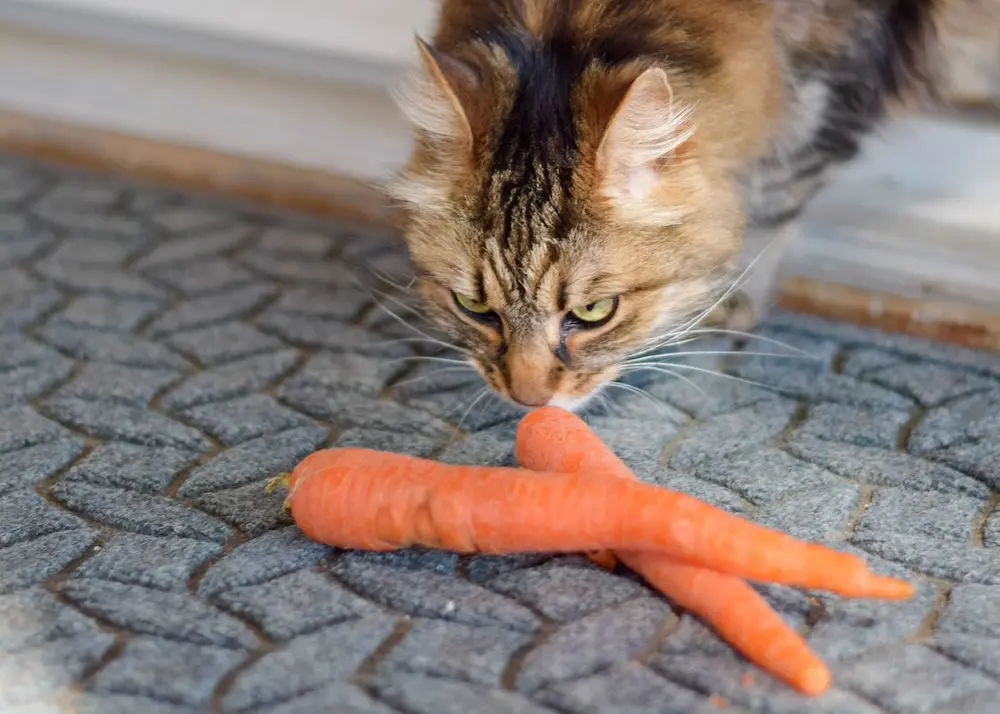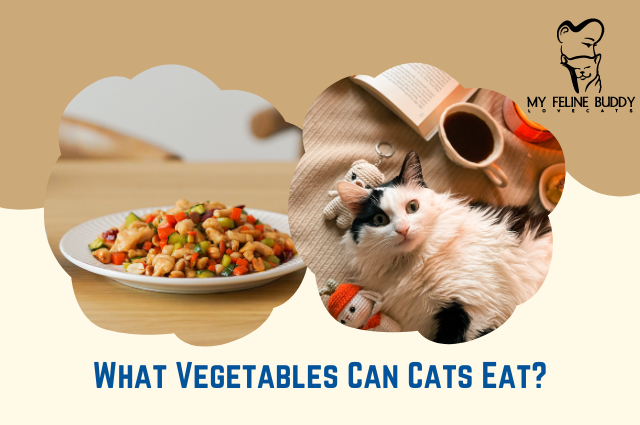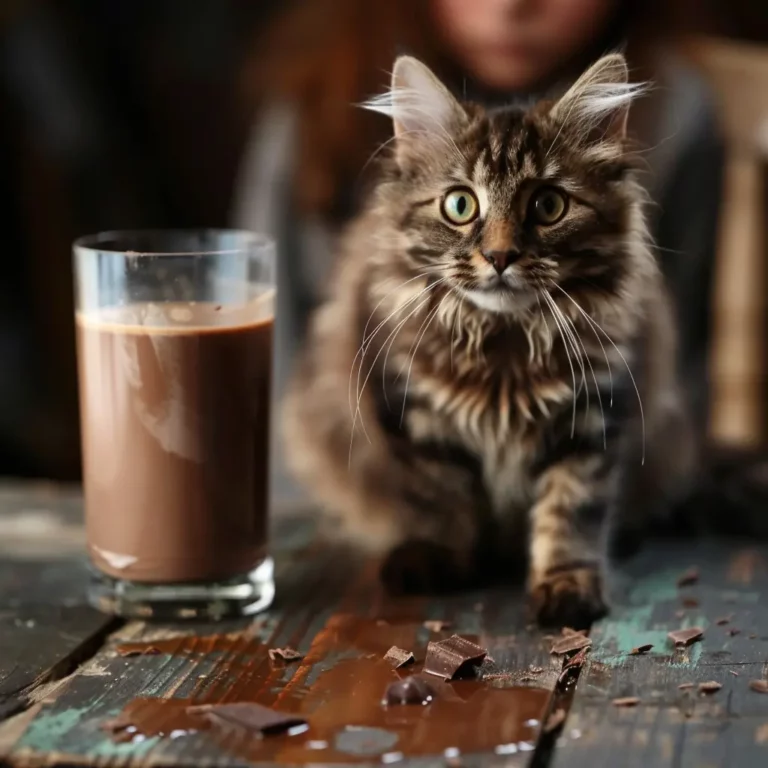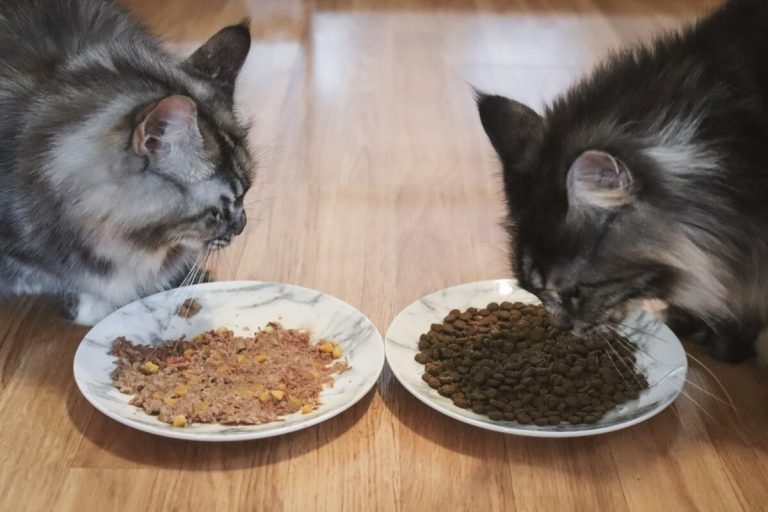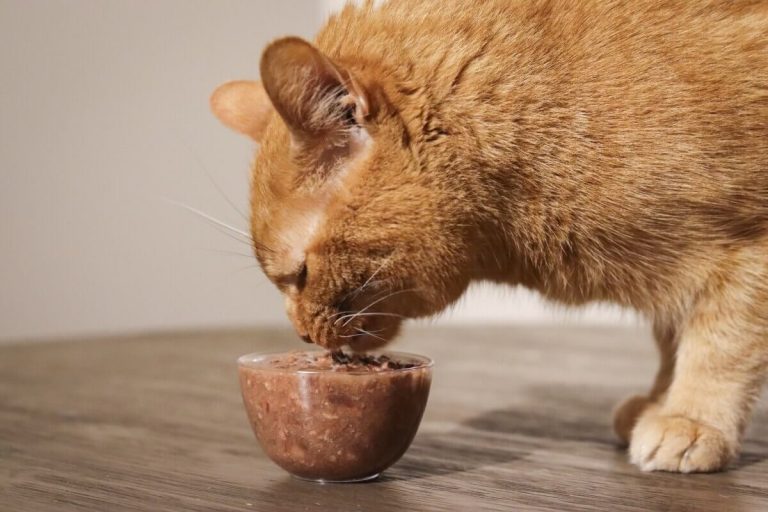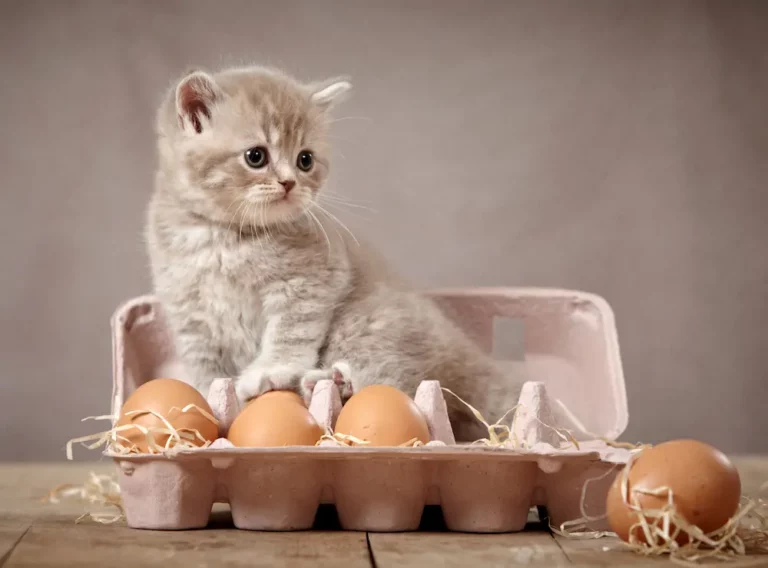Can Cats Safely Enjoy Carrot Cake? What You Need to Know
You know, I once wondered if my
But then I started thinking about the ingredients: sugar, nuts, raisins, and spices like nutmeg.
It’s like asking if Batman could join the Avengers—seems harmless but isn’t quite right.
Cats are obligate carnivores, meaning their diet should primarily consist of meat.
Carrots themselves are okay in moderation, but the rest of the cake?
Not so much.
So, what exactly makes these ingredients harmful, and are there safer treat alternatives for our cats? Let’s explore.
Common Carrot Cake Ingredients
A typical carrot cake includes ingredients like carrots, flour, sugar, eggs, butter, baking powder, cinnamon, and often nuts or raisins.
Each component plays an important role in creating that moist, flavorful dessert we all love. Flour provides structure, while sugar not only sweetens but also aids in moisture retention.
Eggs work as a binding agent, and butter adds richness.
Baking powder is vital for leavening, ensuring your cake rises beautifully. Cinnamon offers a warm, aromatic note, and carrots contribute both texture and natural sweetness.
Nuts and raisins, often debated like the inclusion of pineapple on pizza, add additional texture and flavor complexity.
Think of them as the Avengers assembling for a mission; each ingredient brings its unique power to the mix.
However, it’s crucial to remember that while these ingredients create a heavenly treat for us, they mightn’t be suitable for our
Understanding these ingredients helps me make informed decisions about what I share with my pets.
Just as I wouldn’t want to spoil the plot of a great movie for someone, I don’t want to risk my
Potential Harmful Additives
Some ingredients in carrot cake can be harmful to cats, making it important to examine what goes into this dessert before sharing it with our
For instance, many carrot cake recipes include raisins or currants, which are toxic to cats and can cause kidney failure. Even a small amount can be dangerous, so it’s best to steer clear.
Additionally, nuts like walnuts often make an appearance in carrot cake.
While they might add a delightful crunch for us, they can cause digestive issues in cats.
Let’s not forget about sweeteners; xylitol, a common sugar substitute, is extremely toxic to cats and can lead to severe health problems, including liver failure.
Then there’s the icing.
Cream cheese frosting, a staple of carrot cake, is rich in fat and sugar, both of which aren’t ideal for a
Nutritional Value Overview
Carrot cake’s ingredients offer a range of nutrients but also come with potential risks for our
While the carrots themselves pack a punch of vitamins like A and K, the other ingredients present a mixed bag of health impacts.
For instance, the sugar and spices that make this cake so delicious for us can be harmful to cats.
To break it down, here are some key ingredients and their effects:
- Carrots: Rich in beta-carotene, which converts to vitamin A, carrots can actually be beneficial in small amounts. However, cats are obligate carnivores and don’t require these nutrients in the same way humans do.
- Sugar: High sugar content can lead to obesity and diabetes in cats. Unlike us, cats don’t need sugar in their diet and can suffer serious health issues from consuming it.
- Spices (like cinnamon and nutmeg): These ingredients can be toxic to cats in large amounts, causing gastrointestinal and neurological issues.
In essence, while the nutritional value of carrot cake might seem appealing to us—think of it as the ‘Kryptonite’ for cats.
It’s best to serve them treats specifically catered to their dietary needs. Remember, our goal is to keep our
Sugar and Cats
I’ve got to talk about sugar and cats because it’s a big deal. Cats don’t process sugar like we do, and too much can lead to health issues like diabetes and obesity.
Understanding the difference between natural and added sugars is important for keeping our
Sugar’s Impact on Health
Sugar’s impact on a
When a
Just like binge-watching your favorite TV series while munching on snacks can cause weight gain, cats consuming sugar are at a higher risk of obesity. This extra weight can strain their joints and lead to diabetes.
Think of sugar as the villain in your
Cats lack the enzymes necessary to break down sugar effectively, which can result in digestive upset, including diarrhea and vomiting.
Natural Vs. Added Sugars
When it comes to sugars in a
Natural sugars, like those in carrots, provide essential nutrients and are less likely to cause harm.
However, added sugars, like those found in carrot cake, can be detrimental to a
To break it down:
| Type of Sugar | Source | Impact on Cats |
|---|---|---|
| Natural | Fruits, Vegetables | Generally safe, some nutrients |
| Added | Processed Foods | Can cause obesity, diabetes |
| Artificial | Low-cal Sweeteners | Potential health risks, toxic |
Natural sugars, although safer, should still be given in moderation.
Cats are obligate carnivores, meaning their bodies are designed to process proteins and fats more efficiently than carbohydrates.
Think of it like giving a dog a bone, but with more nuance.
Conversely, added sugars can lead to obesity and diabetes in cats, much like the way too much candy affects our own health. Remember Garfield’s love for lasagna? Imagine if it was carrot cake—he wouldn’t be as spry.
Let’s serve our cats by keeping their diet as natural and balanced as possible.
Potential Allergens
Many ingredients in carrot cake, such as nuts and dairy, can act as potential allergens for cats.
As an avid pet owner, I’ve learned that our whiskered pals have more sensitive systems compared to humans.
While we might enjoy a slice of carrot cake without a hitch, cats can experience severe reactions to certain ingredients.
Common potential allergens in carrot cake include:
- Nuts: Walnuts and pecans are common in carrot cake recipes and can cause allergic reactions in cats.
- Dairy: Many carrot cakes contain cream cheese frosting, and dairy products can lead to gastrointestinal issues in cats.
- Eggs: Though not as common, some cats can have allergic reactions to eggs, another staple in carrot cake recipes.
Think of it like this: imagine your
Just like Cap wouldn’t let his team down, we shouldn’t let our purring pals suffer from preventable allergens.
By understanding these potential allergens, we can better serve our cats, ensuring they stay healthy and happy without the risk of allergic reactions.
Toxic Ingredients
Carrot cake might seem harmless, but it often contains toxic ingredients like raisins and nutmeg that can pose serious health risks to cats. Raisins, even in small amounts, can lead to kidney failure in cats.
Think of it as the kryptonite to our furry Superman.
The exact mechanism isn’t fully understood, but the danger is real and immediate.
If a
Nutmeg, another common ingredient, contains a compound called myristicin.
This can cause hallucinations, increased heart rate, and even seizures in cats.
Imagine your
Moreover, carrot cake often has high amounts of sugar and fat. While not exactly toxic, these can lead to obesity and other health issues.
It’s like feeding your
In essence, while sharing food is a loving gesture, carrot cake is a treat best kept away from your
Safe Treat Alternatives
Although carrot cake is off the menu, let’s explore some nutritious and delicious treat alternatives that won’t put your
Cats, like us, enjoy variety in their diet, but it’s crucial to pick treats that align with their dietary needs.
Here are some safe and tasty treats for your
| Treat | Health Benefits | Serving Tip |
|---|---|---|
| Cooked Chicken | High in protein, low in fat | Serve plain, no seasoning |
| Salmon | Rich in Omega-3 fatty acids | Offer small, cooked portions |
| Blueberries | Packed with antioxidants | Give fresh or slightly mashed |
These treats not only provide essential nutrients but also keep your
Think of cooked chicken as the John Wick of
Blueberries?
They’re the antioxidant-packed superheroes, akin to Wonder Woman, fighting off free radicals.g, form small balls, and bake at 350°F for 10-12 minutes. This recipe provides protein and fiber without harmful additives.
Conclusion
As a
They’re obligate carnivores, after all. Instead, I’d opt for treats that cater to their meat-loving nature. Think of it like serving Wolverine a salad—just not right!
Let’s stick to safe,
